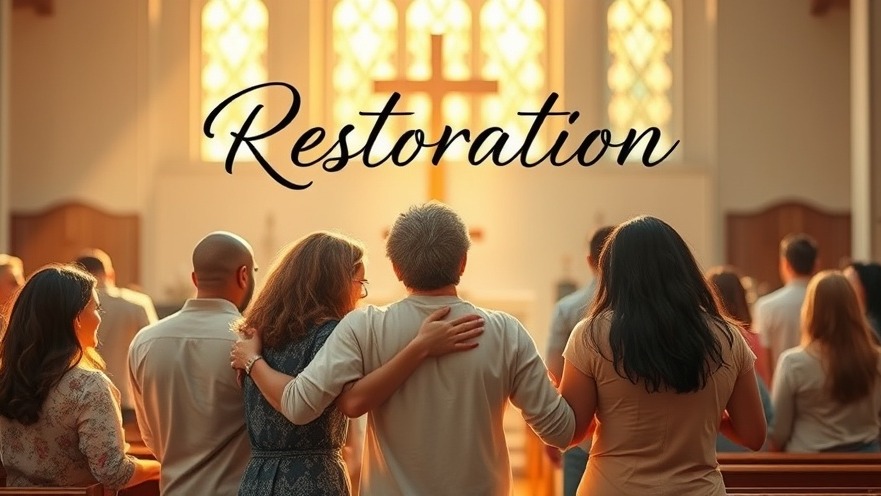
Understanding Church Discipline: A Necessary Step Towards Restoration
In Bible teachings, church discipline is often misunderstood. However, it is critical to recognize that discipline isn't meant to push people away, but rather to draw them closer to God. This crucial principle is emphasized in Matthew 18:15-17, where members are encouraged to confront each other's sins with humility and love, seeking reconciliation and restoring relationships. For committed Christians seeking to navigate difficult situations within their communities, understanding this concept is essential.
The Goal of Restoration: Love and Forgiveness
When we talk about restoring a repentant sinner, we must focus on love and forgiveness rather than condemnation. The Church's ultimate goal, as outlined in Galatians 6:1, is to restore the sinner gently. This isn't just about enforcing rules but about nurturing souls back to health. Just as a family forgives and helps a loved one heal from mistakes, the church should mirror that compassionate approach, emphasizing spiritual growth and healing.
Steps to Take When Offering Restoration
If someone shows genuine repentance, the church must respond with grace. For this act of restoration to be meaningful, it requires thoughtful steps. Engaging the sinner in conversations that emphasize accountability while also lifting them up in prayer can be terribly impactful. By doing so, the church community can create a supportive environment that encourages true transformation.
The Role of Church Leaders in Restoration
Leaders in the church play an important role in the restoration process. They should actively create spaces for discussions and healing. Recognizing how deeply sin affects individuals allows leaders to shepherd their congregation towards grace. This means encouraging those like the son-in-law who committed adultery to not just attend services but also partake in fellowship, focusing on spiritual reconciliation and community integration.
Common Misunderstandings About Church Discipline
Many people believe that church discipline equates to punishment, but that is far from the truth. It is vital to dispel this misconception. Discipline is not about pushing sinners away; rather, it’s a loving, corrective measure aimed at guiding individuals back to a closer walk with Jesus Christ. Misunderstanding discipline can lead to feelings of isolation for those who need the church the most.
Encouraging Open Conversation in the Church
Open conversations about sin, repentance, and restoration should be encouraged within church communities. Through dialogue, communities can work together to foster a deeper understanding of biblical teachings and their practical applications in today's context. This reinforces the belief that the church should be a space of healing, not judgment.
Conclusion: The Impact of Restoration on Communities
The act of restoration is not only critical for the individual but also for the church community as a whole. When members see the church embracing a repentant sinner, it sends a powerful message about love, forgiveness, and Jesus's transformative power. A community's ability to restore lives strengthens its fabric, allowing everyone a chance to experience grace.
As we engage in our journeys of faith, let’s be reminded to embrace opportunities for restoration, ensuring our churches remain places of hope and healing.
 Add Row
Add Row  Add
Add 








 Add Row
Add Row  Add
Add 

Write A Comment